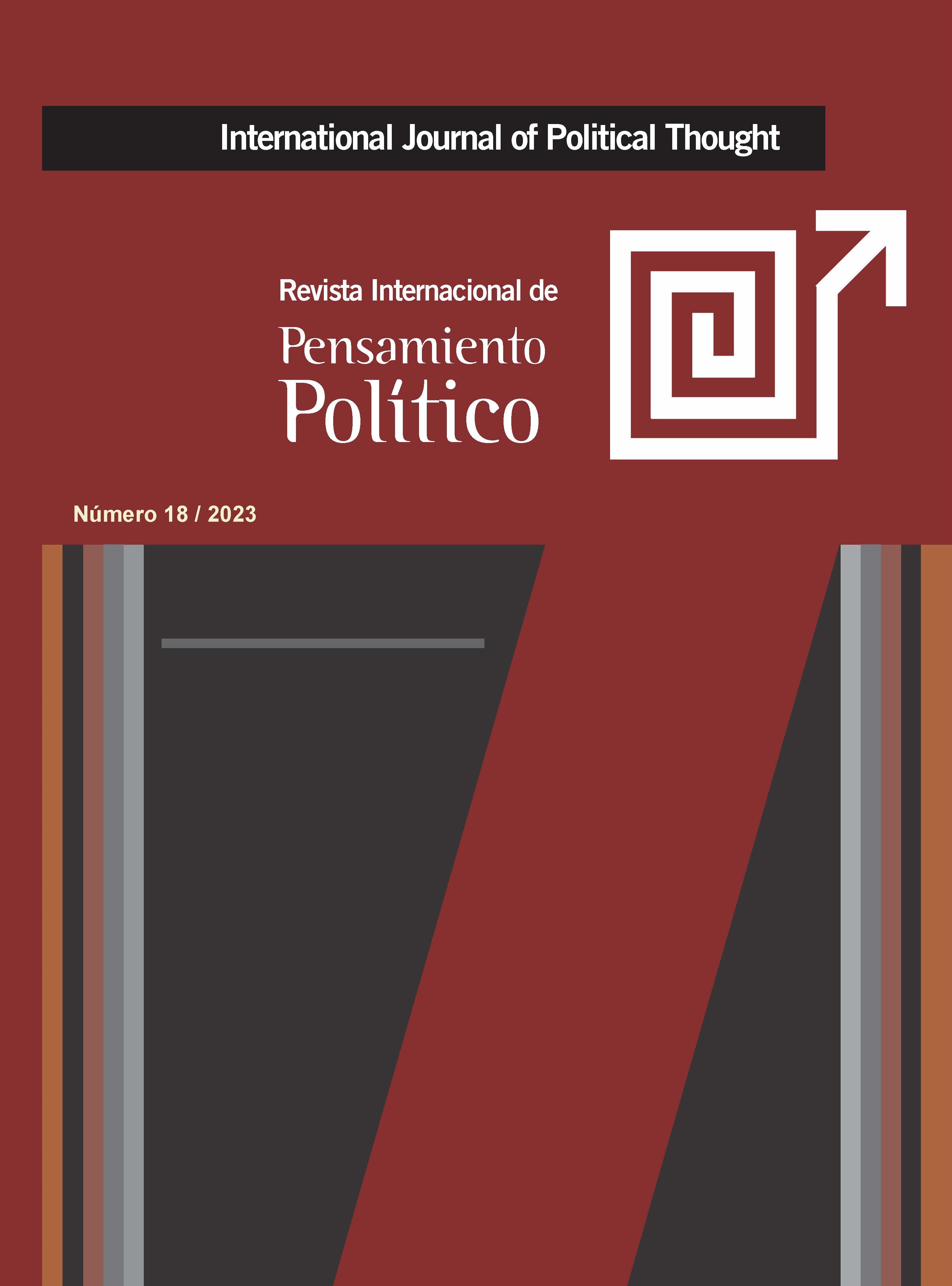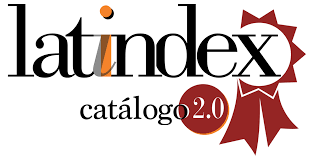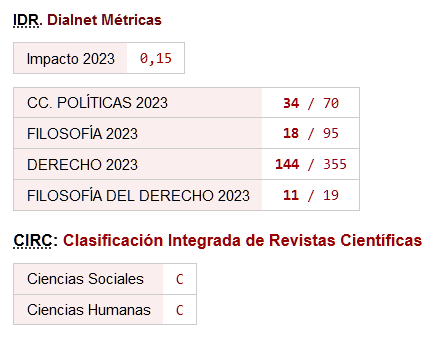The theoretical construction of corruption
Are we clear we are discussing about?
DOI:
https://doi.org/10.46661/revintpensampolit.8822Keywords:
international rankings, positivism, methodological approaches, definition, corruptionAbstract
One of the major drawbacks that distorts any investigation into corruption is to define the material object of study. Corruption, being a multiform phenomenon and, in some way, omnipresent in all cultural coordinates, requires multidisciplinary approaches, so that descriptivism and positivism are transcended. The study of corruption, its theoretical conceptualization and the methodologies of approaching, have been in the hands of organizations that have monopolized its design, its creation and, overall, its meaning, turning their efforts more towards the public sphere from the beginning. Traditional visions do not serve to understand what corruption is, so it is necessary to review the main trends to reveal their lights and shadows, that is, the degree of explanatory scope concerning the epistemological and methodological approaches commonly used.
Downloads
References
AGUILAR JUNCOSA, I. M. (2021). "Los riesgos de corrupción de los lobbies", Revista Española de Transparencia, 12, p. 126. https://doi.org/10.51915/ret.122 DOI: https://doi.org/10.51915/ret.122
BAKOWSKI, P. (2022). “Combating Corruption in The European Unión”, Think Tank European Parliament (European Parlamentary Research Service, December)
BODRUZIC, D. (2016). "Vice or Coping Mechanism? Bridging Political Science and Anthropological aproches to the Study of Corruption", Critique of Anthropology, 4, 36 p. 376. https://doi.org/10.1177/0308275X16654552 DOI: https://doi.org/10.1177/0308275X16654552
BUCHAN, B. (2002). "Changing Contours of Corruption in Western Political Thought, c. 1200-1700", en BARCHAM, M; HINDESS, B.; LARMOUR, P. (eds). Corruption. Expanding the Focus, ANU Press, p.73.
CAIDEN, G. (2001). "Corruption and Governance", en CAIDEN, G. et al. (eds). Where Corruption Lives. Bloomfield: Kumarian Press, p. 21. DOI: https://doi.org/10.1515/9781565495975
DE GRAAF, G. (2007). "Causes of Corruption: Towards a contextual Theory of Corruption", Public Administration Quarterly, 31, 1/2, pp. 39-86.
DE GRAAF, G., WAGENAAR, P., HOERDERBOOM, M. (2009). "Constructing Corruption", en DE GRAAF, G. et al (eds). The Good Cause. Theoretical Perspectives on Corruption, Verlag Barbara Budrich, p. 109. https://doi.org/10.3224/86649263 DOI: https://doi.org/10.3224/86649263
DE LA TORRE, M. (2016). "The Foreign Corrupt Practice Act: Imposing an American Definition of Corruption in Global Markets", Cornell International Law Journal, 49, 2, p. 762.
FIJNAUT, C. & HUBERT, L. (2002). Corruption, Integrity and Law Enforcement. The Hague: Kluwer Law International, p.4.. https://doi.org/10.1163/9789004481213 DOI: https://doi.org/10.1163/9789004481213
GARZÓN, B. (2015). El fango: cuarenta años de corrupción en España. Barcelona: Debate.
HARRISON, E. (2007): "Corruption", Development in Practice, 17, 4/5, p. 674. https://doi.org/10.1080/09614520701469971 DOI: https://doi.org/10.1080/09614520701469971
HELLER, P. (2009). "Understanding corruption: How systems theory can help ", en DE GRAAF, G. et al (eds), opus cit., pp. 65-66.
HEYWOOD, A. (1997): "Political Corruption: Problems and Perspectives", Political Studies, XLV, p. 426. https://doi.org/10.1111/1467-9248.00089 DOI: https://doi.org/10.1111/1467-9248.00089
HINDESS, B. (2013). "Good Goverment and Corruption", en LARMOUR, P & WOLANIN, N.: Corruption and Anti-corruption, ANU Press, p. 4. https://doi.org/10.22459/CAC.03.2013.01 DOI: https://doi.org/10.22459/CAC.03.2013.01
JAIN, A.K. (2001). "Corruption: A Review", Journal of Economic Surveys, 15, 1, pp. 86-87. https://doi.org/10.1111/1467-6419.00133 DOI: https://doi.org/10.1111/1467-6419.00133
KENNEDY, D. (1999). "The International Anti‐Corruption Campaign", Connecticut Journal of International Law, 14, pp. 455-465.
KOBYLKA, J. F. & KENT CARTER, B. (1987). "Madison, 'The Federalist', & the Constitutional Order: Human Nature & Institutional Structure", Polity, 20, 2, pp. 190-208. https://doi.org/10.2307/3234779 DOI: https://doi.org/10.2307/3234779
KROEZE, R. at al. (2018). "Introduction. Debating corruption and anticorruption in History", en KROEZE, R.; VITÓRIA, A; GELTNER, G. (eds): Anticorruption in History. From Antiquiety to Modern Era, Oxford University Press, p. 1. https://doi.org/10.1093/oso/9780198809975.003.0001 DOI: https://doi.org/10.1093/oso/9780198809975.003.0001
LEDERMAN, D., LOAYZA, N. V., SOARES, R. (2005). "Accountability and corruption: political institutions matter", Economics & Politics, 17, 1, pp. 1-2. https://doi.org/10.1111/j.1468-0343.2005.00145.x DOI: https://doi.org/10.1111/j.1468-0343.2005.00145.x
LEYS, C. (1965): "So What Is Really the Problem about Corruption?", The Journal of Modern African Studies, 3, 2, p. 215. https://doi.org/10.1017/S0022278X00023636 DOI: https://doi.org/10.1017/S0022278X00023636
MCGOVERN, F. (1907): "Legal repression of political corruption". Proceedings of the American Political Science Association, 4, p. 206. https://doi.org/10.2307/3038473 DOI: https://doi.org/10.2307/3038473
MCKRITICK, E. L. (1957): "The Study of Corruption", Political Science Quaterly 72, 4, p. 502. https://doi.org/10.2307/2146191 DOI: https://doi.org/10.2307/2146191
MEDINA, J. (2015). "When Rhetoric Obscures Reality: The Definition of Corruption and its Shortcomings", Loyola of Los Angeles Law Review, 48, pp. 546-650.
MORA MOLINA, J.J. (2014). "Corrupción y rendición de cuentas", Derechos y Libertades, 30, 145-172.
MORA MOLINA, J.J. (2017). "Cuando legislar no es suficiente: las consecuencias prácticas de los artículos 6 y 68 de la Constitución española", Derechos y Libertades, 37, 103-129.
MOROFF, H. (2005). "Internationalisierung von Anti‐Korruptionsregimen", en Alemann, Ul‐rich v. (ed.): Dimensionen politischer Korruption. Beiträge zum Stand der internationalen Forschung. Wiesbaden: VS Verlag für Sozialwissenschaften, pp. 444-477. https://doi.org/10.1007/978-3-322-80518-8_24 DOI: https://doi.org/10.1007/978-3-322-80518-8_24
NYE, J. (1967). "Corruption and Political Development: A Cost-Benefit Analysis", The American Political Science Review, 61, 2, p. 419. https://doi.org/10.2307/1953254 DOI: https://doi.org/10.2307/1953254
PARK, H. (2003). "Determinants of Corruption: A Cross-National Analysis", The Multinational Business Review, 11, 2, pp. 29-30. https://doi.org/10.1108/1525383X200300010 DOI: https://doi.org/10.1108/1525383X200300010
PROSHUNIN, M.M. & KUMUKOV, M.SH. (2020). "Legal and Theoretical Approaches to the Definition of Corruption", RUDN Journal of Law. 24, 3, p. 450. https://doi.org/10.22363/2313-2337-2020-24-3-497-512 DOI: https://doi.org/10.22363/2313-2337-2020-24-3-497-512
REVUELTA, A; VILLORIA, M. (2016). "La regulación de los grupos de interés como instrumento de prevención de la corrupción", en VILLORIA, M; GIMENO FELIU, J.M.; TEJEDOR BIELSA, J. (Dir): La corrupción en España. Ámbitos, causas y remedios jurídicos, Barcelona, Atelier. https://doi.org/10.4000/ccec.5949 DOI: https://doi.org/10.4000/ccec.5949
ROSE-ACKERMAN, S. (1996). "Corruption and Democracy", Proceedings of the Annual Meeting (American Society of International Law), MARCH 27-30, Vol. 90: Are International Institutions Doing their Job?, p. 83. https://doi.org/10.1017/S0272503700085827 DOI: https://doi.org/10.1017/S0272503700085827
SCHULLER, W. (1982). Korruption im Altertum, München: R. Oldenbourg, p. 125. https://doi.org/10.1515/9783486823103 DOI: https://doi.org/10.1515/9783486823103
TANZI, V. (1995). "Corruption: Arm's-lengh Relationships and Markets", en FIORENTINI, G. & PELZMAN SM (eds.): The Economics of Organised Crime, Cambridge University Press. https://doi.org/10.1017/CBO9780511751882.014 DOI: https://doi.org/10.1017/CBO9780511751882.014
TEORELL, J. (2007). "Corruption as Instituion. Rethinking the Nature and Origins of the Grabbing Hand", QoG Working Papers Series 5.
THEOBALD, R. (1999): "So What Really Is the Problem About Corruption?", Third World Quaterly, 20, 3, pp. 491-502. https://doi.org/10.1080/01436599913640 DOI: https://doi.org/10.1080/01436599913640
United Nations Office on Drugs and Crimes, 2004. UNITED NATIONS CONVENTION AGAINST CORRUPTION. New York, (unodc.org)
VILLORIA MENDIETA, M. (2019). "Introducción: ¿de qué hablamos cuando hablamos de corrupción?", en Combatir la corrupción, Madrid, Gedisa, pp. 15-32.
WARREN, M.E. (2004): "What Does Corruption Mean in Democracy?", American Journal of Political Science, 48, 2, pp. 229-30. https://doi.org/10.2307/1519886 DOI: https://doi.org/10.2307/1519886
WARRENT, M. E. (2006): "Democracy and Deceit: Regulating Appearances of Corruption", American Journal of Political Science 50, 1, p. 161. https://doi.org/10.1111/j.1540-5907.2006.00176.x DOI: https://doi.org/10.1111/j.1540-5907.2006.00176.x
WILLIAMS, R. (1999): "New Concepts for Old?", Third World Quaterly, 20, 3, p. 503. https://doi.org/10.1080/01436599913659 DOI: https://doi.org/10.1080/01436599913659
Downloads
Published
How to Cite
Issue
Section
License
Copyright (c) 2023 Juan Jesús Mora

This work is licensed under a Creative Commons Attribution-NonCommercial-ShareAlike 4.0 International License.
Open access policy
Free and open access is allowed to any interested party to all the contents of the journal issues, free of charge, being able to print and transfer all the articles, with the only condition of specifying the source and authorship.
The journal: a) does not charge authorship costs for the processing of articles or for their submission, b) maintains copyright for authors without restrictions, c) facilitates authors to keep their publication rights without limitations.
The International Journal of Political Thought is an original work of the Laboratory of Political Ideas and Practices of the Pablo de Olavide University. All articles included in the Journal are original work of their respective authors. This Journal is freely offered to the scientific and academic community at no cost and releases the contents according to the license "Attribution-NonCommercial-ShareAlike 4.0 CC BY-NC-SA" of the Creative Commons project available in the following url: https://creativecommons.org/licenses/by-nc-sa/4.0/legalcode
If you wish to translate or compile any of the articles available here, please contact us at contacto












 ISSN: 1885-589X
ISSN: 1885-589X  Universidad Pablo de Olavide
Universidad Pablo de Olavide